Are you considering a counter job offer and unsure how to respond? Crafting the perfect reply is crucial for maintaining professional relationships while also communicating your career goals. In this article, we'll guide you through the nuances of responding to a counter offer, ensuring you navigate the conversation with confidence. So, let's dive in and explore the best strategies for handling this important decision!

Appreciation and Gratitude
Expressing appreciation for a counter job offer highlights the recognition of value from the current employer. Focusing on gratitude emphasizes the positive aspects of being considered essential to the team. Highlighting key elements such as salary adjustments, benefits packages, or career development opportunities showcases the thoughtful nature of the response. Acknowledging the efforts made by management to retain talent reinforces a supportive workplace culture, promoting further engagement and loyalty. Ultimately, a well-articulated response can strengthen relationships and encourage open communication regarding future possibilities.
Acknowledgment of Counter Offer
When evaluating the potential impact of a counter job offer from an employer, various factors come into play. A counter offer typically arises after an employee receives an external job offer from another organization. This may prompt an employer, such as a tech company in Silicon Valley, to propose enhanced salary or benefits, such as health insurance or flexible working hours. Acknowledgment of the counter offer is crucial to maintain professionalism and open lines of communication. It allows the employee to consider the complete compensation package, job satisfaction, and future career growth opportunities within the current organization versus the external prospect. There are benefits of remaining in a familiar work environment, such as established relationships and company culture, that need to be weighed against potential challenges of transitioning to a new workplace.
Personal Decision and Justification
In the realm of career development, receiving a counter job offer can present a pivotal moment in professional decisions. Many individuals, having received an enticing offer from a competitor, find themselves weighing the pros and cons of remaining at their current workplace, often a company with a legacy of innovation, such as Apple or Google. These organizations typically provide robust benefits packages, including health insurance, stock options, and retirement plans that can significantly influence one's financial future. However, personal considerations, such as workplace culture, growth opportunities, and job satisfaction, play an equally crucial role. For instance, if the new position promises unparalleled career advancement or a unique technology focus, like artificial intelligence advancements at Tesla, this can sway one's decision. Ultimately, articulating clear justification for choices regarding career paths--whether remaining loyal or seeking new horizons--is essential for both personal fulfillment and professional integrity.
Reaffirm Commitment or Decline
A counter job offer can lead to important decisions about career paths and workplace satisfaction. Acknowledging the original job offer, which could provide new challenges or growth opportunities, is essential in this scenario. If choosing to reaffirm commitment to the current role, it's vital to express gratitude towards the counter offer, while also emphasizing long-term career goals and aspirations. If declining, providing a respectful rationale and highlighting appreciation for the current employer's support can maintain a positive relationship for future interactions. Clarity and professionalism ensure the decision is understood and respected in a corporate environment.
Closing Remarks and Considerations
Responding to a counter job offer requires careful consideration of various factors. Evaluate the company culture and work environment of the current organization compared to the prospective employer. Assess the financial implications, including salary adjustments, benefits packages, and potential bonuses offered by both companies. Review opportunities for career advancement, professional development programs, and training initiatives that may enhance long-term growth. Consider the work-life balance provided by each position, factoring in commute times and flexible working arrangements. In closing, express gratitude for the current employer's counter offer while clearly articulating your reasons for acceptance or decline based on the assessments of these critical elements.

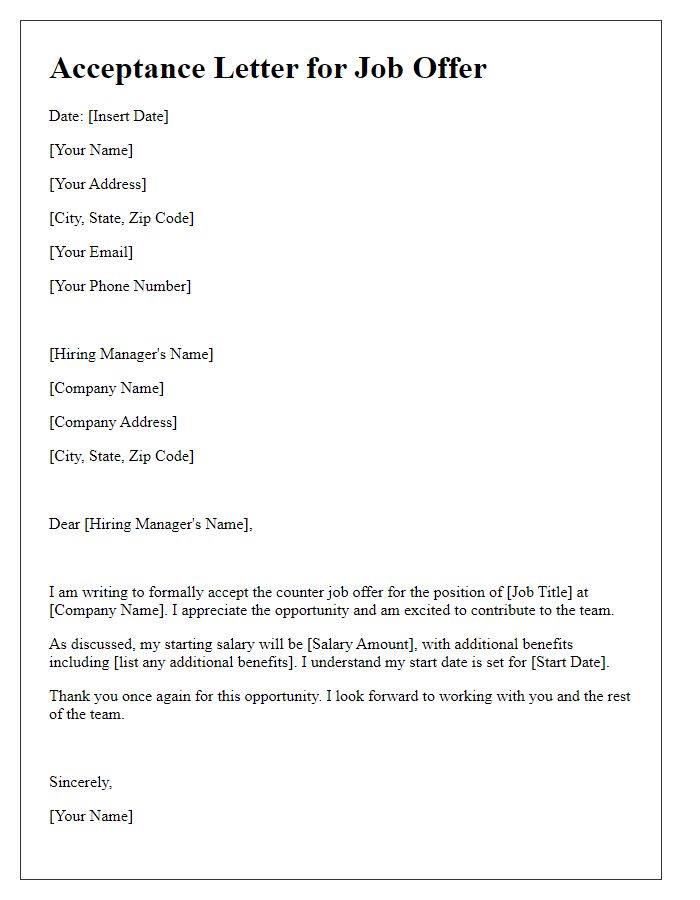
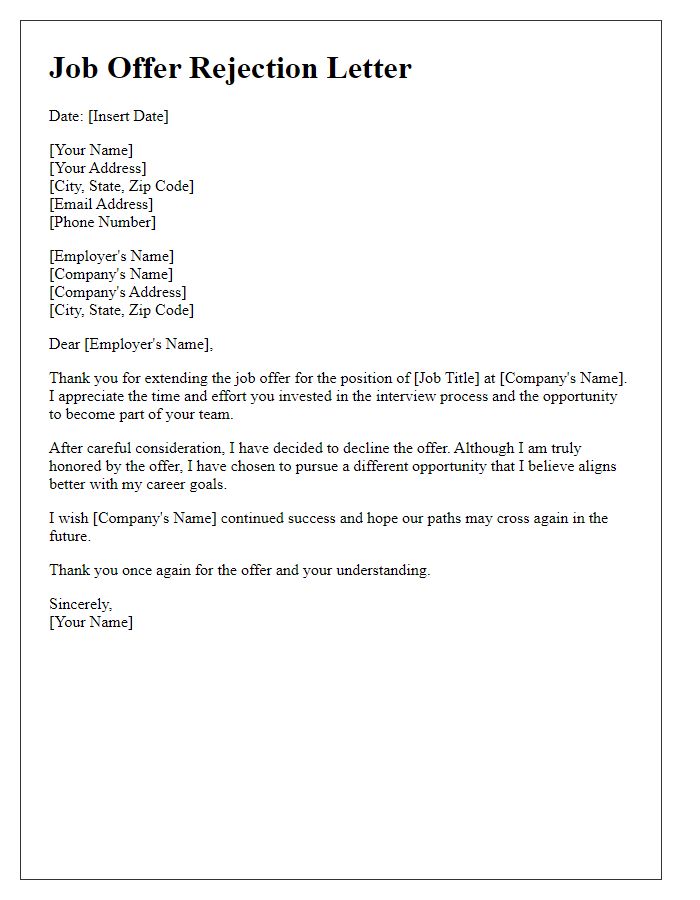
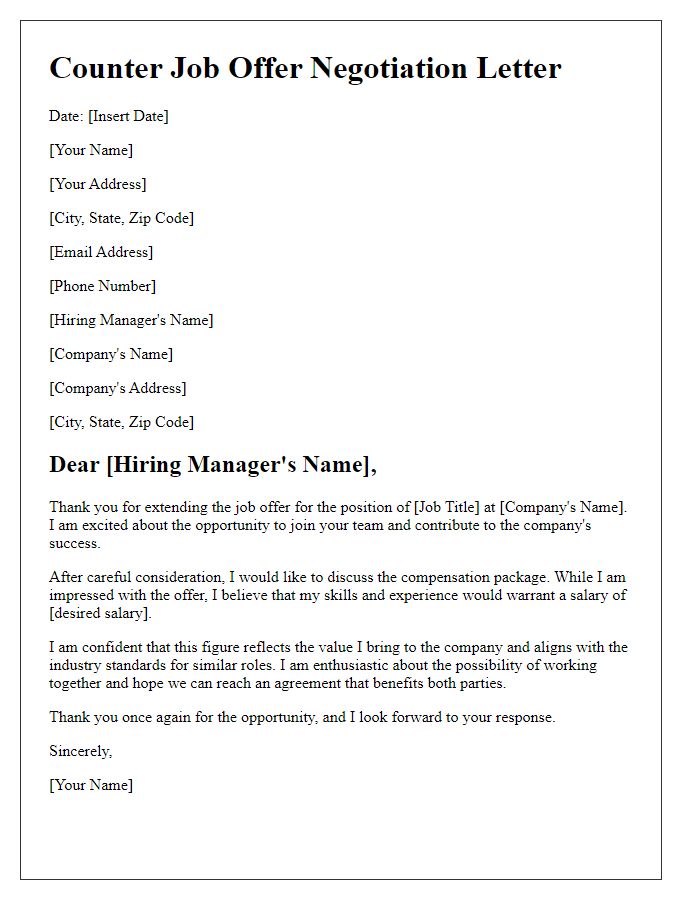
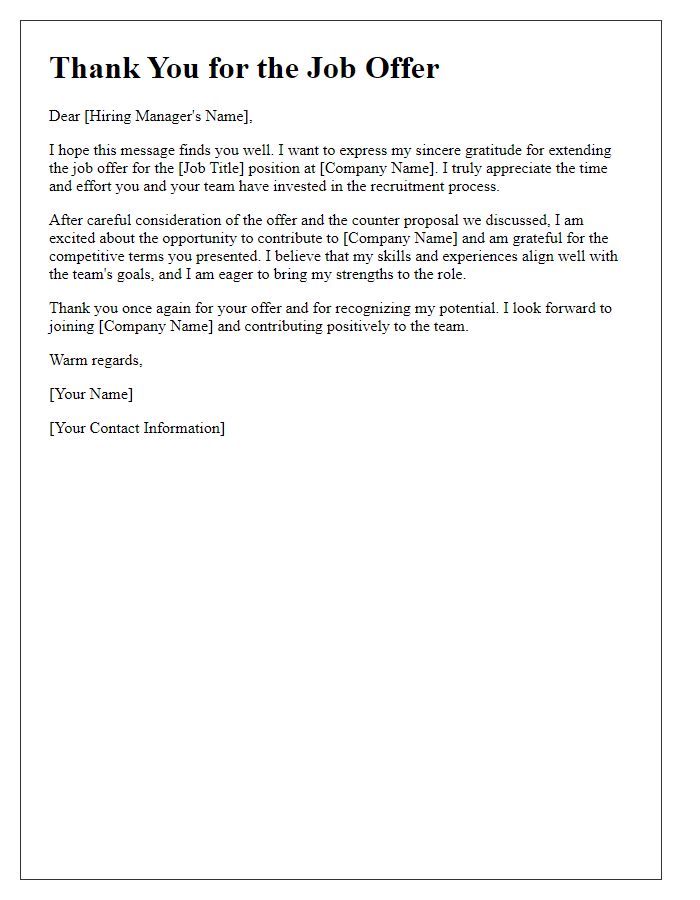
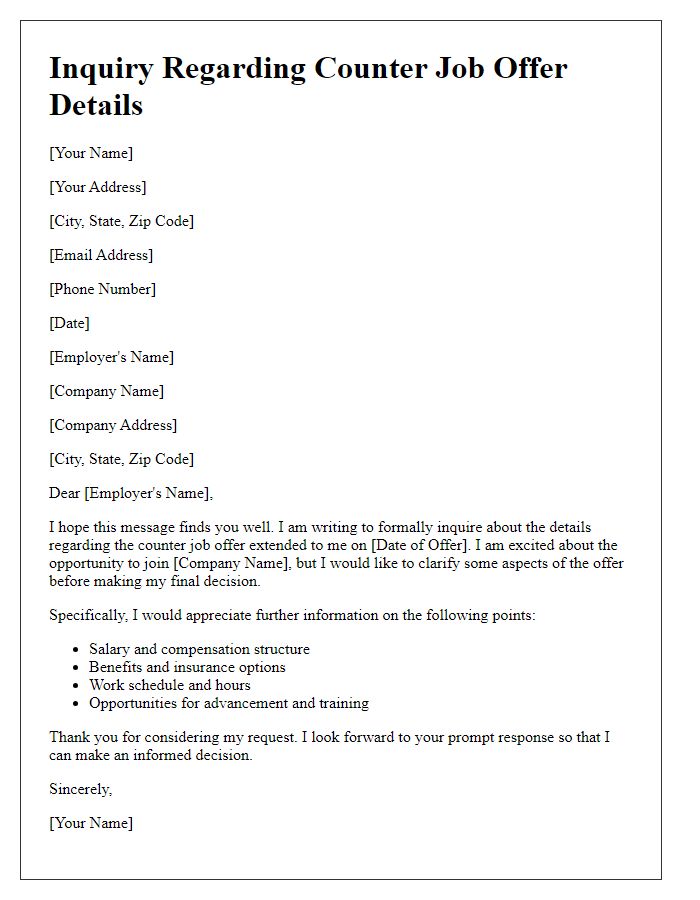
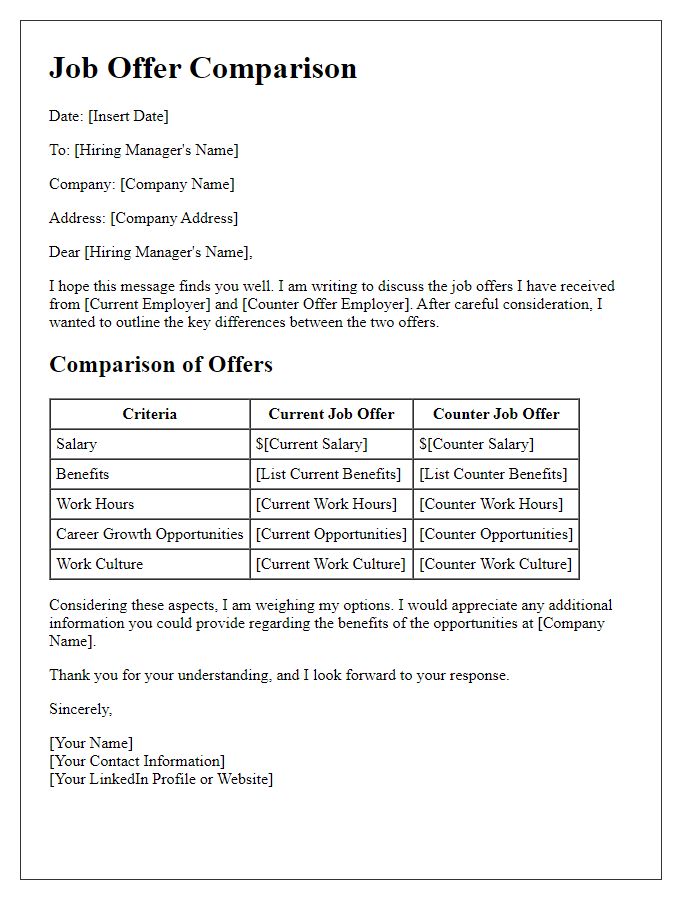
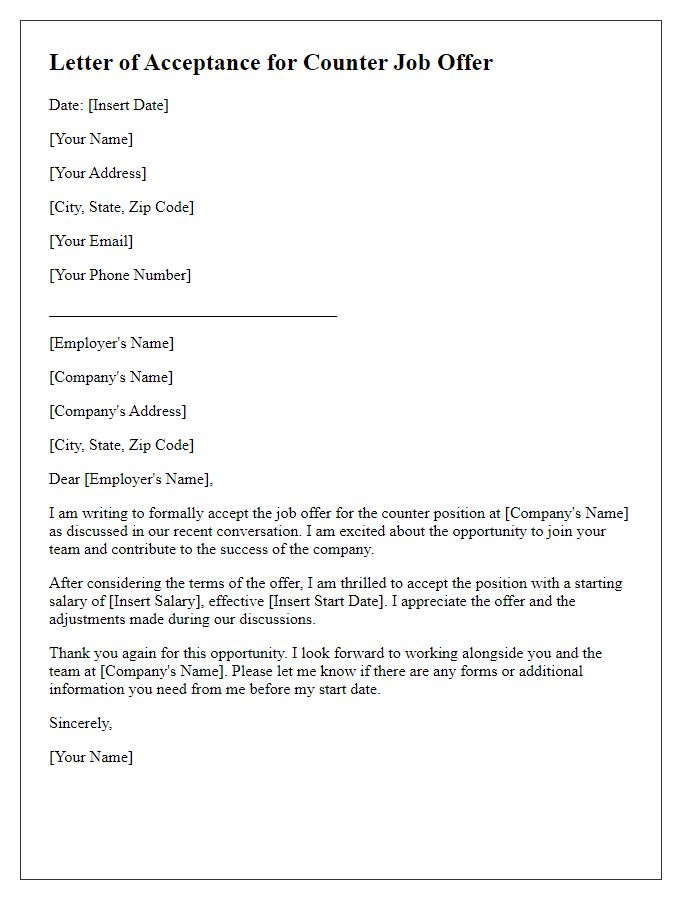
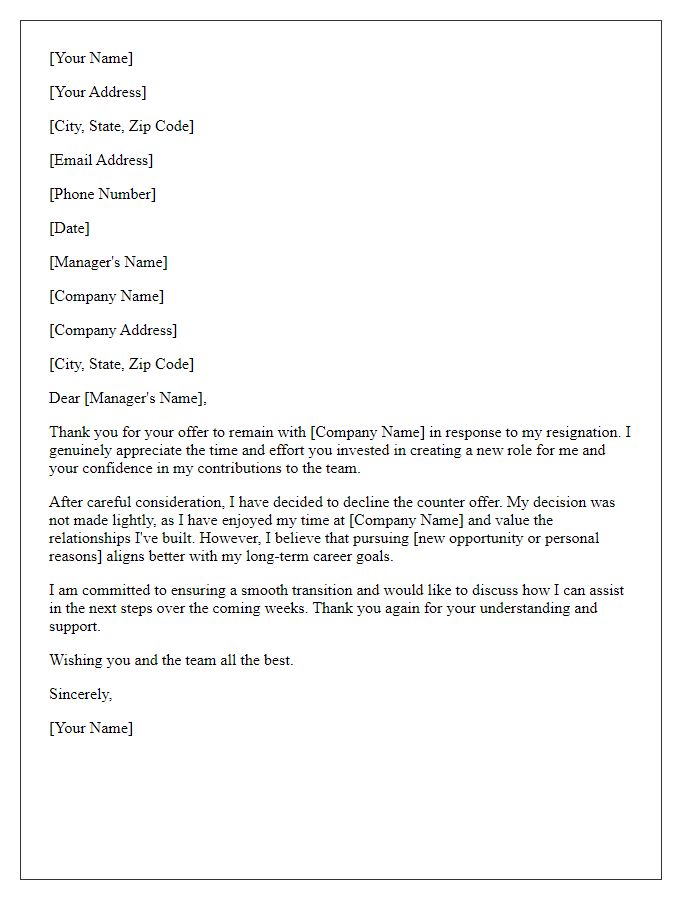
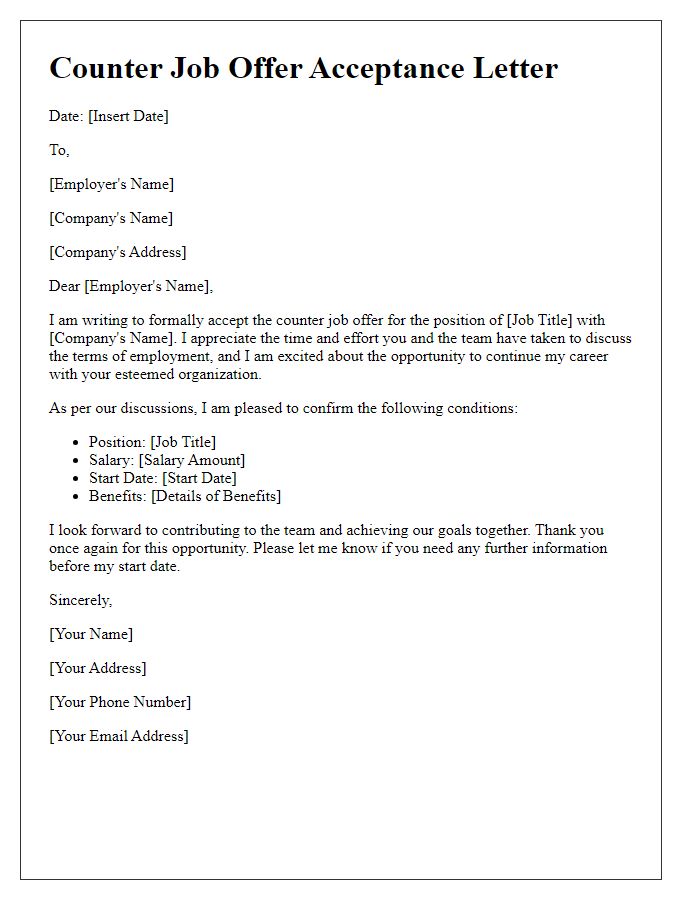
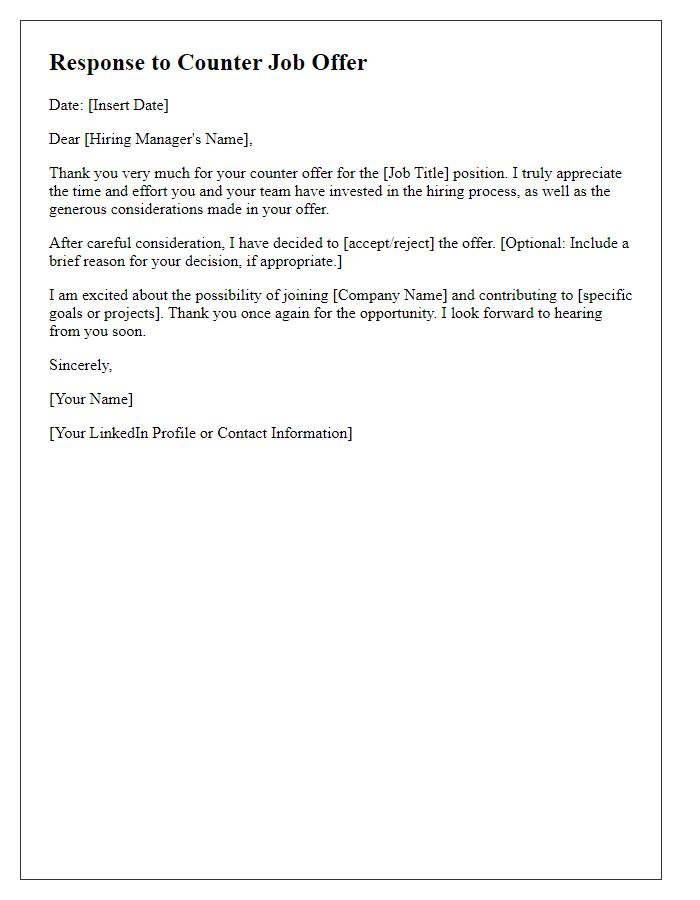


Comments